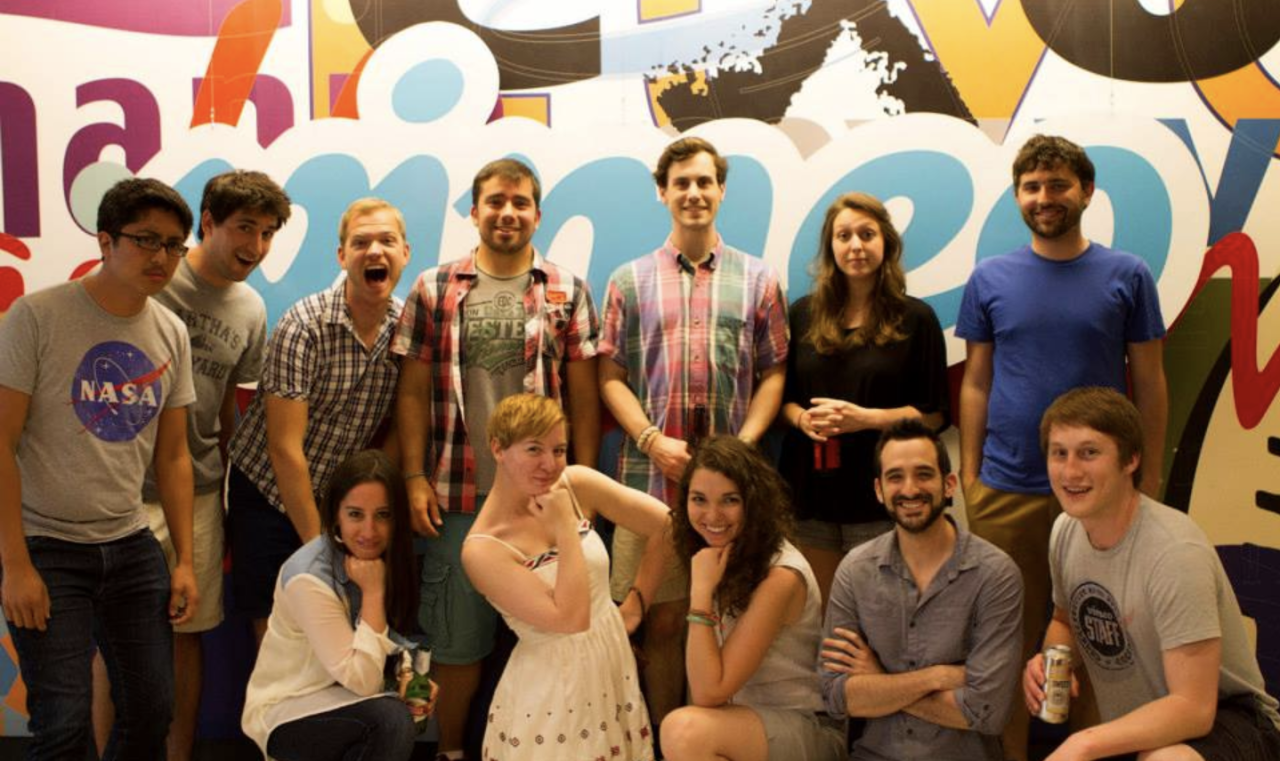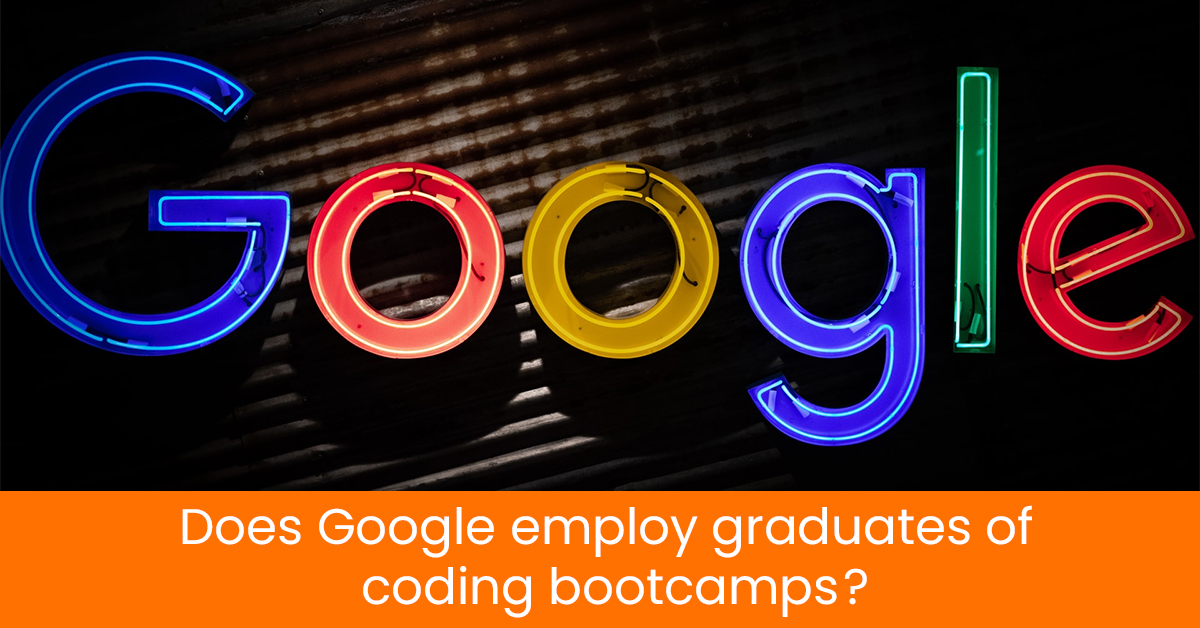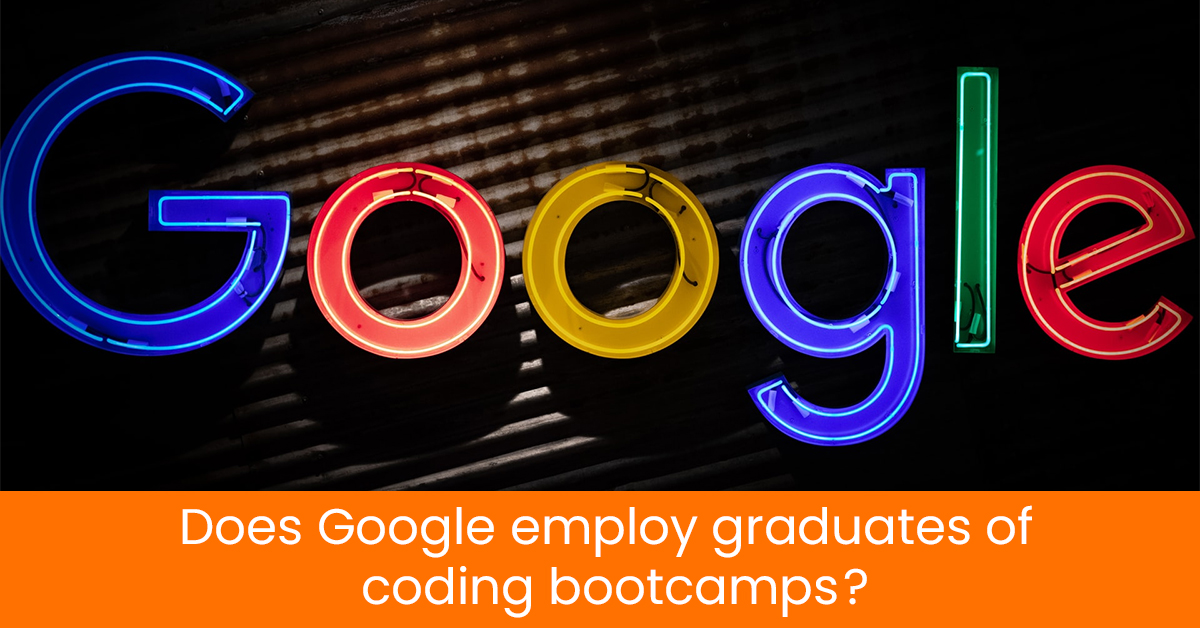Google’s Hiring Practices: Does Google Hire From Coding Bootcamps

Google, renowned for its innovative culture and technological prowess, employs a rigorous and multifaceted approach to recruiting software engineers. The process emphasizes not only technical skills but also problem-solving abilities, teamwork, and cultural fit. Securing a position requires demonstrating a strong understanding of computer science fundamentals and the ability to apply that knowledge to real-world challenges.
Google’s approach to recruiting software engineers is highly competitive, attracting top talent globally. The company seeks candidates who possess a strong foundation in computer science, excellent problem-solving skills, and a demonstrated ability to work effectively in teams. Beyond technical proficiency, Google values candidates who are innovative, collaborative, and passionate about technology. The selection process is designed to identify individuals who can thrive in a fast-paced, dynamic environment and contribute meaningfully to Google’s ongoing projects.
Typical Qualifications Sought in Software Engineering Candidates
Google’s hiring criteria extend beyond a simple checklist of skills. The company looks for a blend of technical expertise, problem-solving aptitude, and a demonstrated ability to collaborate effectively within a team. Strong communication skills are also crucial, as engineers frequently work in collaborative settings and need to articulate their ideas clearly and concisely. Experience with specific programming languages or technologies may be advantageous, depending on the specific role, but a solid foundation in computer science principles is considered paramount. Furthermore, evidence of past projects, whether personal or professional, allows Google to assess a candidate’s practical skills and ability to deliver results.
Google’s Recruiting Pathways
Google utilizes a variety of pathways to identify and recruit top software engineering talent. University recruiting programs actively engage with leading universities, conducting on-campus interviews and attending career fairs to attract graduating students. Online applications, submitted through Google’s careers website, form another major avenue for candidates to express their interest. Employee referrals, where current Google employees recommend qualified individuals, often represent a highly effective recruitment strategy, leveraging the internal network to identify strong candidates. Finally, Google also actively participates in industry events and hackathons to scout for promising individuals.
Comparison of Qualifications: Bootcamp Graduates vs. University Graduates, Does google hire from coding bootcamps
The following table compares the typical qualifications Google might seek from bootcamp graduates versus university graduates. It’s important to note that this is a generalization, and individual candidates’ qualifications will vary widely.
| Qualification | Bootcamp Graduate | University Graduate | Difference |
|---|---|---|---|
| Programming Proficiency | Strong in specific languages taught in the bootcamp, practical project experience. | Broader foundation across multiple languages, potentially deeper theoretical understanding. | Bootcamp graduates often demonstrate more immediate practical application skills, while university graduates may have a stronger theoretical foundation. |
| Computer Science Fundamentals | May have limited exposure to theoretical concepts; focus is on practical application. | Typically possesses a strong understanding of data structures, algorithms, and design patterns. | University graduates generally have a more comprehensive understanding of fundamental computer science principles. |
| Problem-Solving Skills | Demonstrated through bootcamp projects and challenges. | Demonstrated through coursework, projects, and potentially internships. | The assessment of problem-solving skills is similar, though the context and complexity might differ. |
| Teamwork Experience | May have limited experience depending on bootcamp curriculum and projects. | Often has experience through group projects and potentially team-based internships. | University graduates generally have more opportunities for developing teamwork skills. |
Networking and Building Connections

Securing a position at Google, especially as a coding bootcamp graduate, often hinges on more than just technical skills. Building a strong professional network is crucial for gaining visibility, accessing hidden job opportunities, and receiving invaluable mentorship. This involves proactively engaging with the tech community and leveraging online platforms to connect with individuals within Google.
Effective networking strategies significantly increase the chances of landing a coveted role. It’s about strategically building relationships, not just collecting contacts. A targeted approach, focusing on genuine connections rather than transactional interactions, yields far better results.
Industry Events and Conferences
Attending industry events and conferences provides invaluable opportunities to network with Google employees and other professionals in the tech field. These events often feature workshops, presentations, and networking sessions, allowing you to showcase your skills and learn about current industry trends. For example, attending Google I/O or similar tech conferences offers direct exposure to Google engineers and recruiters. You can participate in Q&A sessions, workshops, and informal networking events to make connections and learn more about Google’s culture and current projects. The conversations initiated at these events can lead to informational interviews, referrals, and ultimately, job offers. Active participation, such as asking insightful questions and sharing your experiences, demonstrates enthusiasm and initiative, making you more memorable to potential contacts.
Leveraging Professional Networks
LinkedIn is a powerful tool for connecting with Google employees. Bootcamp graduates can strategically use LinkedIn to research Google employees working in their desired roles and departments. Reaching out to these individuals with a personalized message expressing genuine interest in their work and Google’s contributions to the field is a highly effective approach. This can lead to informational interviews where you can learn about the company culture, interview process, and gain valuable insights into the day-to-day realities of working at Google. Further, actively engaging with Google’s LinkedIn page, commenting on their posts, and sharing relevant content demonstrates interest and increases your visibility to recruiters.
Success Stories of Bootcamp Graduates
One bootcamp graduate, Sarah, leveraged LinkedIn to connect with a Google software engineer who had also attended her bootcamp. This connection led to an informational interview, where Sarah learned about the interview process and received valuable advice on preparing her resume and portfolio. The engineer then referred Sarah to the hiring manager for a relevant opening, significantly increasing her chances of getting an interview. Another example involves a bootcamp graduate, Mark, who attended a local tech meetup sponsored by Google. He actively engaged in discussions, demonstrating his skills and enthusiasm. This led to a conversation with a Google recruiter, who was impressed by Mark’s passion and offered him an interview. Mark’s strong networking skills at the event significantly contributed to his successful job placement at Google. These examples illustrate the power of strategic networking in bridging the gap between bootcamp completion and securing a Google position.


Tim Redaksi